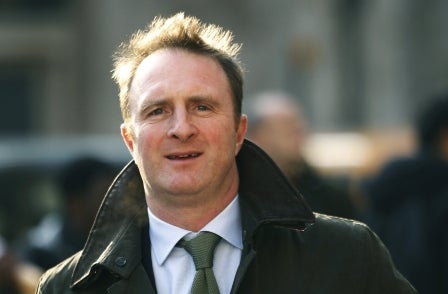
Former Times editor James Harding has hinted that he was forced out of the job by owner Rupert Murdoch last year.
Speaking at the Journalists’ Charity annual lunch, Harding joked that he “was resigned from” the paper when he left suddenly last December.
The charity reports that – responding to a question from the audience – Harding said that when a "proprietor had a different view of things from the editor, I understand that the proprietor is not leaving".
Under legal undertakings given by Rupert Murdoch when he bought The Times in 1981 only the independent directors of the paper have the power to hire and fire editors.
Sunday Times editor John Witherow took over as acting editor of The Times in January, with Martin Ivens becoming acting editor of The Sunday Times. The appointments were not permanent as the independent directors of Times Newspapers were apparently concerned about moves to merge the two titles, again in contravention of the 1981 undertakings.
Speaking at the lunch this week, Harding, who will take over as the BBC’s director of news and current affairs next month, also said the corporation should work more closely with newspapers to safeguard the future of British journalism.
He reportedly told his audience of journalists: “Within the BBC there is a constant hunger for fresh stories and opinions for which it relies on the papers and for its part the BBC acts as a fog horn for the great work of Fleet Street and it should credit newspapers and journalists for their reporting.”
He added that he did not want “an apologetic BBC, but an ambitious BBC which strives to do the best journalism that is possible”. However, he acknowledged that, as a publicly funded body, it could not do the “passionate and naughty” things that newspapers still could.
Harding refused to accept that the series of editorial scandals that have rocked the BBC over the past 12 months had irrevocably shaken the public’s faith in the organisation.
“I don’t buy the idea that the BBC is holed below the water line,” he said. “I think it is an incredibly important news organisation. To have confidence in the BBC is not a fashionable position. I think when you look at the quality of its work it is tremendously impressive but yes it can do better.”
Email pged@pressgazette.co.uk to point out mistakes, provide story tips or send in a letter for publication on our "Letters Page" blog
